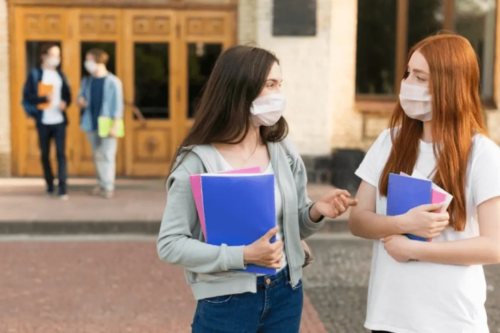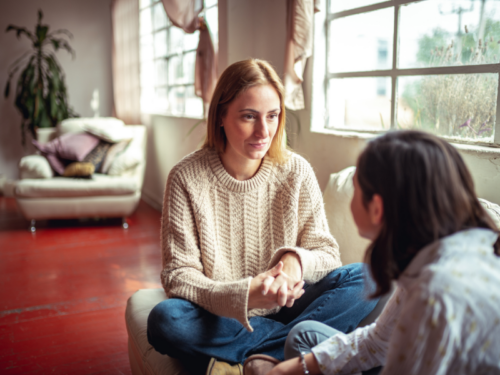
Table of Contents
The Collective Trauma of COVID-19
Written By: Charlie Health Editorial Team
January 13, 2021
3 min.
Despite the new year, COVID-19 continues to spread and devastate communities. Collective trauma refers to an event that incites psychological trauma shared by large groups or populations. In the case of this pandemic, the collective refers to our global population. Not all communities, however, have been impacted the same. It is important to recognize that COVID-19 has devastated certain communities, businesses, families and individuals more than others.
Learn more about our Clinical Review Process
Table of Contents
Despite the new year, COVID-19 continues to spread and devastate communities. Collective trauma refers to an event that incites psychological trauma shared by large groups or populations. In the case of this pandemic, the collective refers to our global population. Not all communities, however, have been impacted the same. It is important to recognize that COVID-19 has devastated certain communities, businesses, families and individuals more than others.
Some of us have endured what is called direct trauma from the pandemic—passing of loved ones, sickness, grief. Many of us have endured indirect trauma from the pandemic—loss of jobs, financial instability, social isolation, fear, exacerbation of mental illness.
Young people, in particular, have experienced trauma from COVID-19. Disruption to social activities, in-person education and extracurriculars have been uprooted. Young people are grappling with this devastation on a daily basis. Sadly, many teens have experienced mental distress, fear and worsening of pre-existing mental health concerns. It is more important than ever for young people to seek help if they are struggling.
In order to appropriately cope with the trauma, seeking out a mental health professional is critical. For young people, research has shown increased admissions to emergency rooms, prevalence of suicidal ideation, and general feelings of unhappiness or loneliness. It’s important for families to work together to have strategies for what to do when crises arise. Each circumstance is unique and requires a tailored approach. Remind your family and loved ones that they are not alone—this is a collective trauma that we are all struggling with.
Despite the beginning of vaccine rollouts across the country, we are unsure of how long this pandemic will continue to affect our everyday lives. It’s critical to acknowledge the impact of this pandemic and learn how to appropriately cope with these circumstances.
How to Cope with Collective Trauma
Stay Connected to Others: Despite social distancing precautions, there are many ways to continue to engage with friends, family and loved ones. It’s important to maintain healthy relationships in order to minimize the feeling of social isolation. While virtual interactions often fall short of in-person connection, there is still great value in maintaining online connections.
Reduce Media Exposure: The constant news cycle can feel overwhelming and exacerbate the collective trauma we are experiencing. Take note of how often you are tuning into the news, and how it is affecting your wellbeing. Try limiting the amount of media coverage you engage with and prioritize living in the moment.
Maintain Healthy Routines: Despite changes to everyday life, it’s important to maintain healthy routines. This may include having designated times for exercise, meals, free-time or family time. While most of us are home more than usual, it’s important to set boundaries. Check-in with yourself about what is creating stress, and write out a plan for how you can best manage your responsibilities.
Reach out for Help: The collective trauma of COVID-19 has had significant impacts on the mental health of our communities. If you are struggling or feel that your symptoms have worsened, reach out for help. There is no shame in admitting that you are in need of support. Mental health professionals are here to listen and provide you with the tools you need to appropriately cope.
Many schools, organizations and community centers have implemented new policies and check-ins for mental health. If you are unsure what resources are available to you in your community, it’s important to ask. Having a supportive network is critical when coping with this collective trauma.
Contact Us
Charlie Health is here to support teens and young adults struggling with mental health and substance use disorders. Our team of expert professionals is here to listen and develop an appropriate treatment plan that fits your needs. You are not alone—Charlie Health is here to support you.





